
The AI Network Podcast
Seth Adler
Seth Adler presents personal conversations with industry leaders.
- 25 minutes 8 secondsEp. 146: Genworth Financial Team
The entertaining Genworth Financial team joins us from OPEX Week 2020 to tell us their enterprise’s transformation story—or journey, more accurately. Kathleen starts off by explaining her view of the company 15 years ago: “It was a very siloed organization. It was very much command and control; very hierarchical. We were focused very much on our processes, like manufacturing, because we came from GE.” Sometimes, as Martijn is quick to interject, they were focusing on the wrong processes. Their new goal was to focus on the customer and increase associate empathy. The leadership team achieved this with some creative physical props that mimic certain hardships their clients experience. However, leading by fear negatively impacts the service a customer receives as well, so Genworth devised a new workforce strategy. “If you really truly believe that the customer is the most important person--because he or she pays your salary--then the front line employees are the most important people, and therefore, your team leaders are the most important leaders. Most people leave their leader. They don't leave the organization.” The team details how they achieved this monumental task.
10 April 2020, 8:00 am - 21 minutes 22 secondsEp. 145: Deena John, McDonalds
McDonald’s senior director of innovation, Deena John, joins us to talk about digital transformation. While definitions vary, Deena describes digital transformation as “transforming through integration of technology” with the goal of generating maximum value for the customer. End-to-end disruption means looking into the future and creating a transformation road map that leads to a new operating model. Deena discusses the differences and similarities between agile and lean, and the iterative process that makes scaling sustainable. Deena frames her key points with specific examples. Next, she asks and answers the question, “In an innovation culture what’s the importance of failing fast?” Ultimately, this insightful conversation with Deena focuses on the future of the enterprise and what needs to happen now to ensure corporations can keep up with the ever-changing landscape that technology brings to business.
1 April 2020, 8:00 am - 31 minutes 27 secondsEp. 144: AI BFSI Panel
This BFSI Panel features key industry experts who share their strategies around pushing their organization into the future. They note that the technology available is user-friendly and rarely the barrier to entry. It is the mapping, the process, and post-implementation that makes or breaks a digital transformation. Agile development and change management are both initiatives that work. Automation has the potential to save time, money, and improve the customer experience, but if it isn’t applied in a purposeful way, it is useless. The panelists share their personal journey through transformation, offering insights and advice along the way.
27 March 2020, 8:00 am - 12 minutes 24 secondsEp. 143: Max Just/Julie Seitz (Future of Work)
Max Just is accompanied by a special guest on this episode of Future of Work. Julie Seitz is an expert on all things workspace, which makes her the perfect partner for the topic of—you guessed it—the future of workspaces. While she notes that an enterprise can’t necessarily futureproof themselves in this regard, she encourages them to get out of their insular spaces for the sake of spotting trends in how people are working in universities, airports, etc. Flexibility and simplicity in a workspace make more practical investments than technological ones that will become outdated. Julie also reflects on the evolution of the public school classroom and how examining that process helps illustrate how different generations work differently. Max jumps in with the ah-hah moments he had while working with Julie, including the importance of providing collaborative workspaces for collaborative work. Ultimately, Max and Julie agree: workspaces matter.
20 March 2020, 8:00 am - 23 minutes 46 secondsEp. 412: Roland Haefs, Henkel
Roland Haefs, with Henkel, discusses enterprise evolution and the shift from having purely transactional relationships to becoming a true business solutions provider. It takes strong leadership and an entrepreneurial spirit to pull off such a transformation, which Roland details. In order to demonstrate his point, Roland lays out Henkel’s approach to the shared services process of master data management. Next, the conversation turns to RPA and AI more specifically, including its role in shared services and how to make sure it is being deployed effectively. Further, Roland discusses Henkel’s four business priorities: fund growth, drive growth, excel at digitalization, and increase agility.
13 March 2020, 8:00 am - 31 minutes 15 secondsEp. 141: Dimitri Popov, Mann + Hummel
Dmitri Popov, global service management lead for Mann + Hummel Group, joins us today to discuss scaling RPA. Dmitri himself admits that such a process is painful, in part because of the few successful enterprise examples for which to model after. Dmitri points to IBM as a company who has done it well. Next, Dmitri discusses how to leverage shared services in the most efficient way, exemplifying R&D and certain purchasing aspects. One of the most difficult components of implementing RPA across the workflow is acceptance and adherence. Dmitri doesn’t mince words when it comes to what it takes in a person—not just an enterprise—to accept change, no matter how positive that change may ultimately be.
6 March 2020, 9:00 am - 9 minutes 32 secondsEp. 140: Deepak Subbarao (Unstructured Data)
Deepak Subbaru joins us again, this time, to discuss unstructured data. The recent explosion in technology inputs has raised the bar for customer expectations. They want more, and they want it now. Requests are coming via phone calls, social media, emails, etc. The product of this feedback is unstructured data. Deepak goes in depth on three actionable steps to take in order to leverage the power of unstructured data: know your data, know the sources of your data, and prepare your data. Next, Deepak discusses the importance of defining outcomes for your data, as opposed to cramming data into an algorithm and receiving an output that has no use case. As Deepak reiterates throughout the conversation, context is key.
28 February 2020, 9:00 am - 17 minutes 56 secondsEp. 139: Heather King, SSON
Heather King is the managing director for both the Shared Services & Outsourcing Network and the Intelligent Automation Division for the Americas. She oversees a team that puts on the dynamic events of relevant content for the industries of the same name. Having been in her role for the past seven years, Heather gives a brief timeline of the creation and growth of the IA series that was born out of SSON. The term RPA first presented itself in 2014 during a panel session and kept cropping up until Heather’s team decided to give it its own plenary session. It was just a matter of time before it became clear that automation needed its own home outside of SSON, and IA was born. Next, Heather goes into detail about the other conferences her team puts on each year, including the largest shared services event in the world, Shared Services & Outsourcing Week. Her passion for the importance of conferences—and the act of conferencing—is as clear as it is contagious.
21 February 2020, 9:00 am - 34 minutes 21 secondsEp. 138: Dr. Ayanna Howard, Georgia Tech University
Dr. Ayanna Howard is a chair of the School of Interactive computing at Georgia Tech, an academic, and a startup founder. While her talents are as vast as her pursuits, she sums up their relation as interactive computing. In her words, “Interactive computing is really this theme that the human is center to everything that we do when we think about computing and artificial intelligence.” Dr. Howard pursues interactive computing for the greater good, including robotics in healthcare and education. She also discusses ethics in computing, including privacy and security.
14 February 2020, 9:00 am - 16 minutes 59 secondsEp. 137: Paul Bao, BitCherry
BitCherry’s Paul Bao explains the blockchain process behind the platform’s commercial applications. Working similar to Amazon’s eCommerce model, BitCherry will offer a platform to buy, sell, and network goods using digital currency. Regulatory roadblocks make penetration in the U.S. difficult, but BitCherry has over 2 million members and 120,000 active daily users. Currently, these users simply buy and sell digital currency in anticipation for BitCherry’s retail applications. Bao expects the retail platform to go live in Q1 of 2020. Next, he details the brainstorming process behind BitCherry’s unique independent investor philosophy and marvels over the future implications of blockchain. While he may be a little ahead of his time, BitCherry’s users prove that there is a lot of faith in the future of eCommerce and digital currency.
7 February 2020, 9:00 am - 22 minutes 17 secondsEp. 136: Blockchain Standards/Blockchain Island
Malta, a small European island, is quickly becoming a blockchain hub, and thus, accurately nicknamed “Blockchain Island.” This panel discussion delves into blockchain developments, standards, and laws. Malta’s progressive, global view of blockchain implications has allowed Blockchain Island to progress in a healthy, robust, safe way, complete with governance and legislation. The panel shares the infrastructure that has led to its success in the hope that others will implement a similar solution. With an end goal of international blockchain standards, a panelist sums up this discussion nicely: “We anticipated the need to regulate blockchain technologies, and that was while everyone else was focusing on the cryptocurrency aspect.” “The ISO standard is starting. So, the ISO standard is anticipating other jurisdictions, and it's starting to look into what it means to regulate blockchain technologies or standardize blockchain technologies.”
31 January 2020, 9:00 am - More Episodes? Get the App
Your feedback is valuable to us. Should you encounter any bugs, glitches, lack of functionality or other problems, please email us on [email protected] or join Moon.FM Telegram Group where you can talk directly to the dev team who are happy to answer any queries.
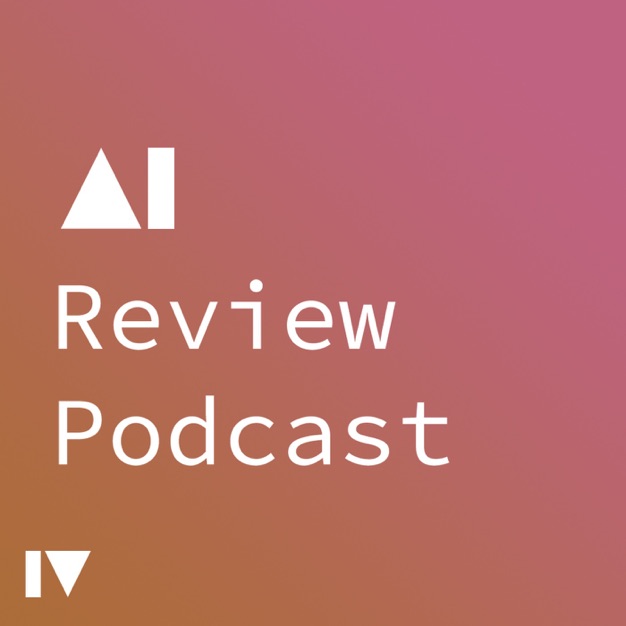 AI REVIEW
AI REVIEW
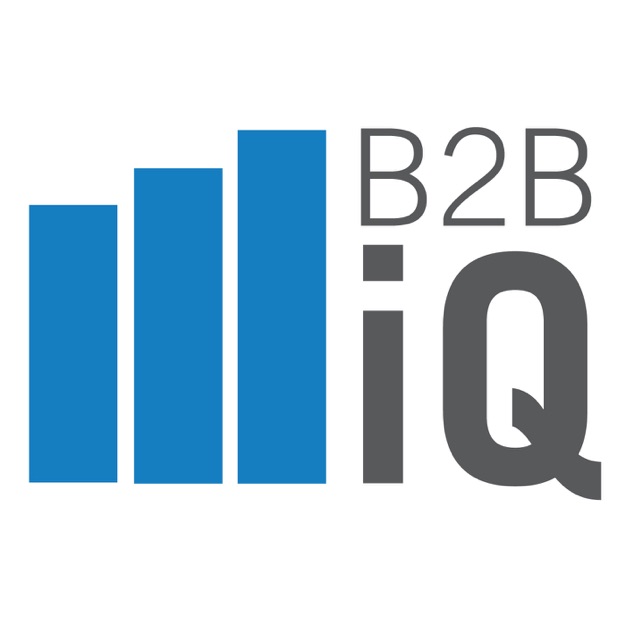 B2BiQ
B2BiQ
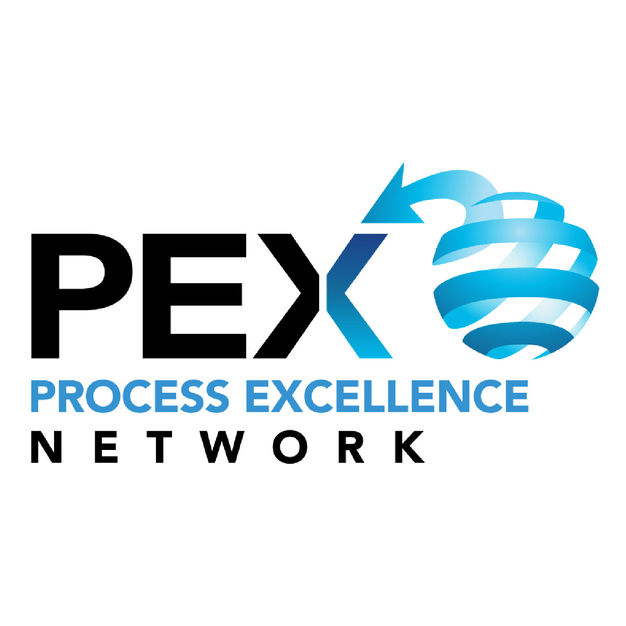 PEX Network | Process Excellence Network
PEX Network | Process Excellence Network
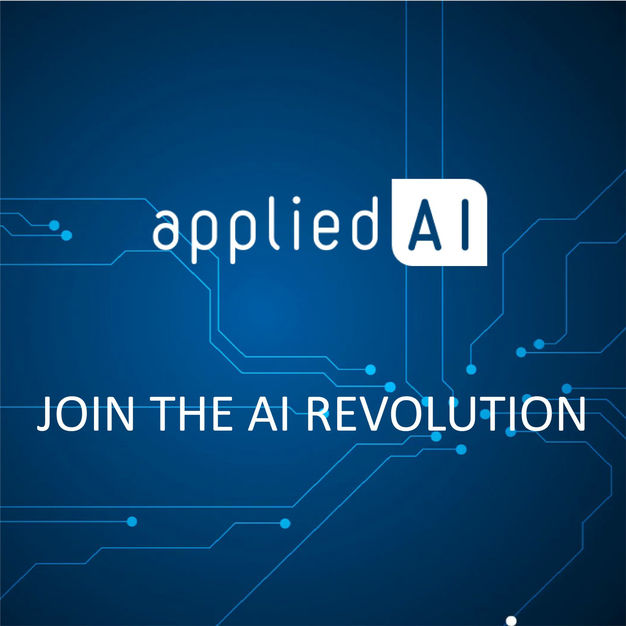 Applied Artificial Intelligence
Applied Artificial Intelligence
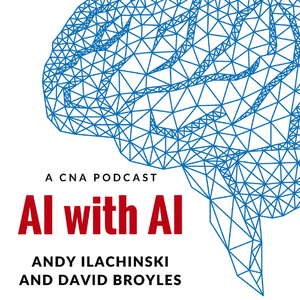 AI with AI: Artificial Intelligence with Andy Ilachinski
AI with AI: Artificial Intelligence with Andy Ilachinski